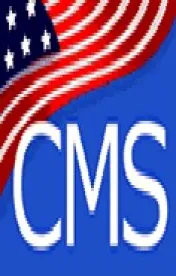The Centers for Medicare and Medicaid Services’ (“CMS”) recently announced its intent to expand what may be considered “supplemental benefits,” broadening the scope of items and services that could be offered to Medicare Advantage (“MA”) plan enrollees over and above the benefits covered under original Medicare. However, in articulating the standards for covering this broadened group of items and services, CMS proposed a new requirement that could greatly limit enrollees’ ability to access all types of supplemental benefits and increase the already substantial burden on MA participating providers; CMS now proposes to require that the supplemental benefits be ordered by a licensed provider.
Under current CMS guidance, supplemental benefits may not be a Part A or Part B covered service, must be primarily health related in that “the primary purpose of the item or service is to prevent, cure or diminish an illness or injury,” and the plan sponsor must incur a non-zero cost for the benefit. Medicare Managed Care Manual, Ch. 4, Sec. 30.1. Within the draft 2019 Call Letter, released on February 1, 2018, CMS proposes to expand the scope of items and services considered “primarily health related” to now include items and services to help maintain health status and not only those that “prevent, cure or diminish illness or injury.” According to CMS, under its new interpretation, in order for a service or item to be primarily health related “it must diagnose, prevent, or treat an illness or injury, compensate for physical impairments, act to ameliorate the functional psychological impact of injuries or health conditions, or reduce avoidable emergency and healthcare utilization.” Current CMS guidance explicitly excludes from being a supplemental benefit those items or services which are solely for daily maintenance purposes. CMS’s broadened definition follows medical and health care research studies which have shown the value of certain ‘maintenance’ items and services in diminishing the effects of injuries or health conditions and decreasing avoidable emergency and health care services.
While broadening the scope of items and services eligible to be considered supplemental benefits, CMS concurrently proposes to add a more stringent standard to an enrollee’s receipt of such benefits. “Supplemental benefits under this broader interpretation must be medically appropriate and ordered by a licensed provider as part of a care plan if not directly provided by one.” Although current guidance specifies medical necessity as a standard for supplemental benefits that extend the coverage of original Medicare, there is no requirement that supplemental benefits be ordered by a licensed provider. Depending upon the nature of the supplemental benefit, such a rule could prevent an enrollee from accessing certain benefits. For example, plan sponsors may provide acupuncture or other alternative therapies as supplemental benefits, but enrollees would only be able to access such services if their provider accepts the value of such services and agrees that they are medically necessary. Given that many in traditional medicine do not support the use of alternative therapies, it is likely that at least some enrollees will be unable to access these benefits under this newly proposed standard. Also, requiring a provider to review and order other types of supplemental benefits would likely create a paperwork burden with no benefit, including, for example, with respect to a supplemental transportation benefit, fitness benefit or over-the-counter drug benefit.
Although CMS should be applauded for seeking to expand the definition of “health related” in identifying eligible supplemental benefits, its proposal to require that such benefits be ordered by a provider as part of a treatment plan will decrease plan flexibility and increase burden for providers and enrollees alike, with minimal benefit.
CMS is accepting comments on the draft Call Letter through 6pm EST, Monday March 5, 2018.




 />i
/>i

